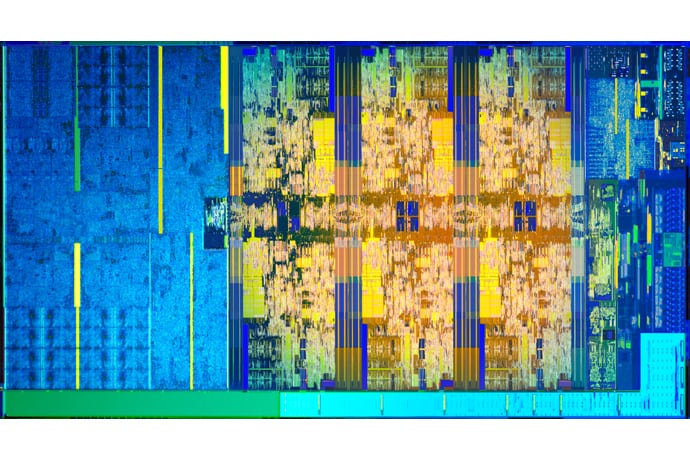It’s here and not without a certain amount of confusion. Intel Coffee Lake processors line up are to hit our favourite PC (e)stores on the 5th of October.
Coffee Lake is two things :
– The third iteration (or optimization) of the 14nm Skylake micro-architecture.
– Intel’s latest attempt to counter punch AMD’s ever-threatening Zen architecture and its different Ryzen CPUs.
Let’s get right at it! Here are the processors’ specs and retail prices as we will see them after tomorrow:
| CPU | Clock | Threads | MSRP (USD) |
| Core i7-8700K | 3.8/4.7GHz | 6/12 Cores/Threads | $359 |
| Core i7-8700 | 3.2/4.6GHz | 6/12 Cores/Threads | $303 |
| Core i5-8600K | 3.6/4.3GHz | 6/6 Cores/Threads | $257 |
| Core i5-8400 | 2.8/4.0GHz | 6/6 Cores/Threads | $182 |
| Core i3-8350K | 4GHz | 4/4 Cores/Threads | $168 |
| Core i3-8100K | 3.6GHz | 4/4 Cores/Threads | $117 |
The first thing to notice is the obvious increase of cores, compared to the previous generations, for a somewhat equivalent released price. So that’s nice. Obviously, cache memory will be increased significantly as well.
Performance gain:
Well, it real seems to vary. In its 22 September press release, Intel had advertised a conservative 10% overall performance gain compared to its predecessor, the Kaby Lake CPU line-up.
Intel is now, advertising a WHOOPING 45% performance increase. One, might get confused, and justifiably so.
To better understand such changes, you need to take a look at the motherboard.
Even though the new Coffee Lake CPUs are still based on the now aging SkyLake micro-architecture, you will need a brand new motherboard, powered by an otherwise identical north-bridge. And that is surprising, to say the least.
Usually, CPU micro-architectures are fully backward and forward compatible with their supporting chip-sets (Z170, Z270). But our Coffee Lake won’t be. It will need the brand new Z370 chip-set, and of course, it will not support any of the previous Skylake micro-architecture based CPUs.
Why you may ask. Certainly, the Z370 chip-set has so much more to bring on the table… NOT AT ALL. Running a quick comparison between the Z270 and the Z370 chipset will tell you that there are one and only, and the reason why Intel took such a handicapping decision for the release of its Zen challenger, has more to do with the Socket voltage and pin configuration.
So no real advantages here.
So why would a consumer be ready to buy a brand new motherboard (again) to use this brand new jewel of innovation? For that 45% performance increase, Intel’s is screaming over land and ocean. And mind you, a performance increase solely based on the CPU, not the chipset.
Is it true?
I will need to run a full benchmark on a Coffee Lake CPU and compare it with a Kaby Lake, but I can already say that it is extremely unlikely, based on both specs, that this claim will ever be substantiated.
I predict a 10 to 15% performance increase, as Intel’ early claims stated. But let’s keep in mind that Intel is betting big here. If they fail to bring substantial performance gain compared to the Kaby Lake line up, I doubt consumers will go through motherboard upgrade just for such an incremental performance gain.
Worse, if Intel doesn’t deliver on Coffee Lake, consumers might very well go through the motherboard upgrade, but to Ryzen’s benefit, and switch CPU teams all together!
